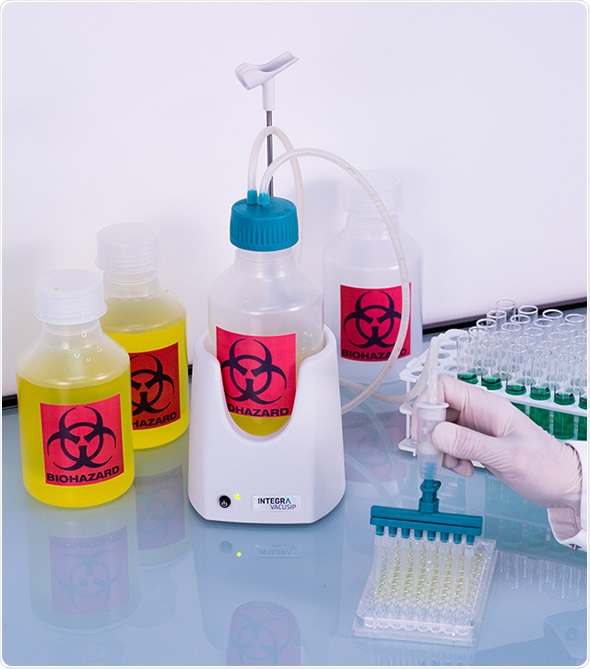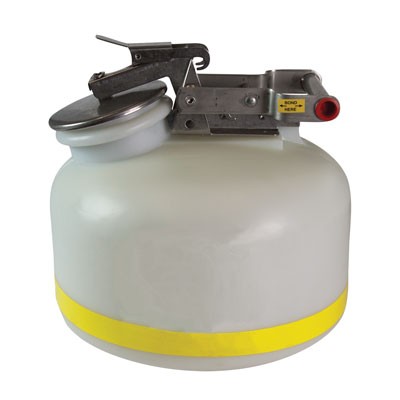Specialist Liquid Waste Removal Melbourne: Fast and Economical Providers
Specialist Liquid Waste Removal Melbourne: Fast and Economical Providers
Blog Article
Understanding the Comprehensive Refine of Fluid Waste Disposal: Best Practices and Environmental Influence Considerations
The monitoring of liquid waste disposal is a diverse problem that calls for a thorough understanding of various ideal techniques and their linked ecological influences. From the sorts of liquid waste produced to the methods used for collection, therapy, and last disposal, each action plays an important role in safeguarding communities and public health. As regulative standards evolve and technology advances, the discussion around these processes ends up being significantly pertinent. What implications do these changes hold for future sustainability efforts, and exactly how can stakeholders make sure that they are appropriately resolved?
Kinds Of Liquid Waste
Recognizing the various sorts of fluid waste is essential for efficient monitoring and disposal practices. Liquid waste can be generally classified into a number of kinds, each calling for unique handling and treatment techniques.
Industrial fluid waste frequently consists of unsafe materials, including hefty steels, solvents, and chemicals, generated throughout manufacturing processes. These wastes require rigorous governing conformity to safeguard human health and wellness and the setting. Residential fluid waste mostly describes wastewater created from houses, including sewer and greywater, which, although less toxic, can still position considerable dangers if poorly taken care of.
Agricultural liquid waste, consisting of runoff from ranches, typically has plant foods and chemicals that can bring about ecological destruction otherwise dealt with appropriately. Clinical fluid waste, produced from health care facilities, includes infected liquids such as bodily fluids and chemicals, requiring specialized disposal methods to stop infection and environmental contamination.
Last but not least, oil and oil waste, commonly generated by dining establishments and automobile industries, can cause extreme clogs in drain systems if not managed properly. Comprehending these classifications assists in targeted techniques for treatment, conformity with guidelines, and effective disposal methods, inevitably promoting environmental sustainability and public wellness security.

Collection Methods
Reliable collection techniques are crucial for the correct management of fluid waste, guaranteeing that it is gathered securely and efficiently prior to therapy or disposal. Different techniques are utilized depending on the type of liquid waste generated, the volume, and the certain attributes of the waste.
One typical method is the usage of dedicated collection containers or sumps, which are designed to catch fluid waste at the source. These systems usually include pumps that help with the transfer of waste to larger storage space containers or treatment centers. Additionally, mobile collection devices geared up with vacuum cleaner technology are used in circumstances where waste is produced periodically or in hard-to-reach places.
For commercial settings, closed-loop systems can effectively reduce spills and leakages, enabling for the healing and reuse of fluid waste. It is also essential to train personnel on correct collection protocols to alleviate risks connected with harmful substances.
In addition, implementing normal upkeep schedules for collection equipment guarantees optimum performance and security. The combination of innovative monitoring systems can enhance collection performance by providing real-time data on waste degrees and potential risks. Generally, effective collection approaches are fundamental to lasting fluid waste monitoring techniques.
Therapy Procedures
Therapy procedures play a vital function in the administration of liquid waste, transforming possibly hazardous materials right into safe effluents or multiple-use resources - liquid waste disposal. These processes can be extensively classified into physical, chemical, and organic approaches, each customized to resolve particular pollutants existing in the waste stream
Physical treatment approaches, such as sedimentation and filtration, job by eliminating put on hold solids and particle matter. These methods are often the initial action in the treatment chain, successfully minimizing the tons on subsequent procedures. Chemical treatments involve making use of reagents to neutralize unsafe materials, precipitate hefty metals, or oxidize organic contaminants, therefore enhancing the security of the effluent.
Organic treatment procedures, including turned on sludge systems and anaerobic digestion, exploit on the natural capacities of microorganisms to break down organic matter. These approaches are particularly efficient for wastewater having naturally degradable toxins. Advanced therapy technologies, such as membrane layer purification and advanced oxidation processes, are significantly used to achieve higher degrees of filtration.
Including a combination of these treatment techniques not just ensures compliance with regulative criteria yet also promotes environmental sustainability by recuperating useful sources from fluid waste.
Disposal Options
How can organizations guarantee the liable and secure disposal of fluid waste? Reliable disposal alternatives are essential for protecting public health and wellness and the setting. The key approaches consist of land therapy, disposal, and incineration adhered to by discharge right into metropolitan wastewater systems.
Land disposal entails the mindful control of fluid waste in marked landfills, making sure that it does not seep into bordering dirt or water. Incineration, on the other hand, subjects fluid waste to heats, transforming it into ash and gases, which call for appropriate filtering to lessen emissions. This method is ideal for dangerous wastes that can not be treated through conventional means.
In situations where liquid waste can be treated, organizations might choose organic or chemical treatment processes to reduce the effects of unsafe parts before releasing the treated effluent into community systems. This route usually lines up with governing demands, making sure that the effluent meets Read More Here safety standards.
Ultimately, companies need to carry out complete analyses of each disposal alternative to identify its stability, taking into consideration factors such as waste structure, her comment is here regulatory conformity, and prospective risks to health and the atmosphere. By choosing ideal disposal techniques, services can add to a liable waste management method.
Ecological Influence
The environmental effect of liquid waste disposal is an essential consideration for organizations seeking to reduce their eco-friendly impact. In addition, the discharge of untreated or inadequately treated waste into surface waters can result in eutrophication, leading to oxygen depletion and the subsequent death of fish and other organisms.

To reduce these impacts, companies need to embrace best practices such as implementing strenuous waste therapy processes, promoting recycling and reuse, and sticking to regulative standards. By taking a proactive strategy to liquid waste administration, entities can considerably reduce their ecological impact while supporting lasting advancement goals. Inevitably, a detailed understanding of the environmental influences linked with liquid garbage disposal is necessary for notified decision-making and liable stewardship of all-natural resources.
Conclusion
Efficient monitoring of liquid waste is vital for safeguarding ecological honesty and public health. Eventually, a thorough understanding of fluid waste disposal not only reduces environmental effects yet additionally cultivates a commitment to accountable source administration and environmental stewardship.
The our website management of fluid waste disposal is a multifaceted problem that calls for a comprehensive understanding of numerous ideal techniques and their linked ecological impacts. From the kinds of fluid waste generated to the techniques used for collection, treatment, and final disposal, each step plays a vital duty in safeguarding environments and public wellness.The ecological influence of fluid waste disposal is a critical consideration for organizations looking for to decrease their ecological footprint. Eventually, a thorough understanding of the ecological impacts linked with liquid waste disposal is necessary for educated decision-making and responsible stewardship of all-natural sources.
Eventually, a thorough understanding of fluid waste disposal not just reduces environmental impacts however likewise promotes a dedication to accountable source monitoring and ecological stewardship.
Report this page